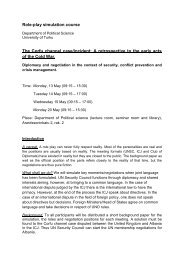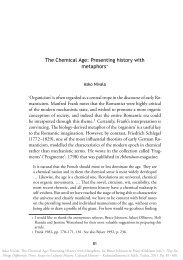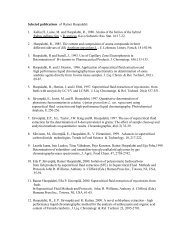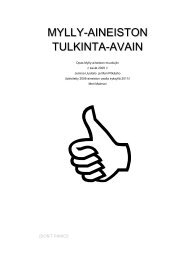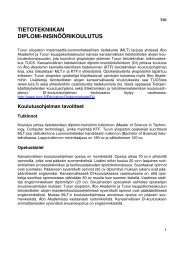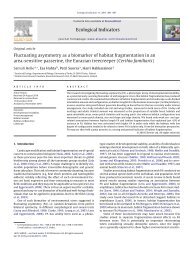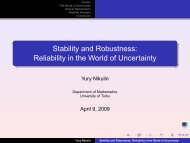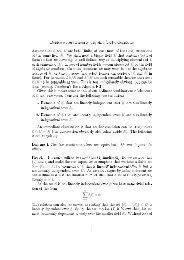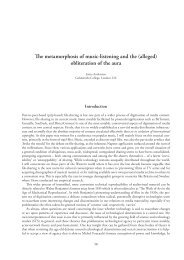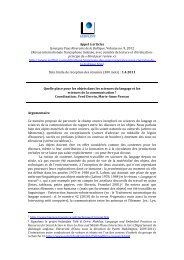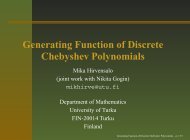The Chemical Age: Presenting history with metaphors∗
The Chemical Age: Presenting history with metaphors∗
The Chemical Age: Presenting history with metaphors∗
You also want an ePaper? Increase the reach of your titles
YUMPU automatically turns print PDFs into web optimized ePapers that Google loves.
<strong>The</strong> <strong>Chemical</strong> <strong>Age</strong>In his Critique of Judgment (Kritik der Urteilskraft, 1790), Kant appliedthis distinction when he noted that there are organic and mechanicalmonarchies: the former are constitutional monarchies and the latter aregoverned by the despotic will of the ruler. In organic monarchy, every subjectcontributes to the decision making process rather like the members ofan organic body. Kant compared mechanical monarchy <strong>with</strong> a hand millcranked by the sovereign’s will. <strong>The</strong> subjects are similar to a mechanicalwheel, the function of which is the practical realization of the authority’swill. 12 In current scholarship, Romanticism is seen to recognize this distinction,and inclining to the organic model. Romanticism is consideredas a movement that defended natural organicism against the mechanisticcontrivance of the modern state. However, Schlegel’s efforts to introducea third model (chemistry) to this dualism problematize this traditionalinterpretation of Romanticism.Witty Metaphors<strong>The</strong> endeavour to unite poetry and science was pervasive in the age ofRomanticism. I argue that this effort should not be misconstrued as anirrational attempt to blur the boundaries between conceptual and metaphoricalthinking. Rather, Romantics had the intellectual honesty torecognize that conceptual language is necessarily dependent on its metaphoricalframework. Friedrich Schlegel identifies the chemical <strong>with</strong> thefaculty that he called wit (Witz): ‘Understanding is mechanical, wit ischemical, genius is organic spirit.’ 13 In Immanuel Kant’s philosophy,understanding (Verstand) connects things together in accordance <strong>with</strong> astatic table of twelve logical categories, which Schlegel thought to be amechanistic process. One of those categories is even mechanical causal12 Kant, KU, A253 = 256; Blumenberg [1960] 1998, pp. 11–12. Kant did not objectmonarchy as such, but to its despotic forms. On Kant’s admiration of Frederick theGreat see Beiser 1992, p. 56. According to Thomas Hobbes, the state is necessarily anartificial mechanism. If subjects relinquish their power to the sovereign, it is possibleto abandon the state of nature, i.e. an uncontrollable conflict between people. Hobbes[1651] 1999, p. 7.13 Schlegel [1798] 1971, p. 221; KFSA II, p. 232. No. 366. Cf. Kapitza 1968, p. 20.Asko Nivala: <strong>The</strong> <strong>Chemical</strong> <strong>Age</strong>: <strong>Presenting</strong> History <strong>with</strong> Metaphors. In: Bruce Johnson & Harri Kiiskinen (eds.): <strong>The</strong>y DoThings Differently <strong>The</strong>re. Essays on Cultural History. Cultural History – Kulttuurihistoria 9. k&h, Turku, 2011. Pp. 81–108.85




